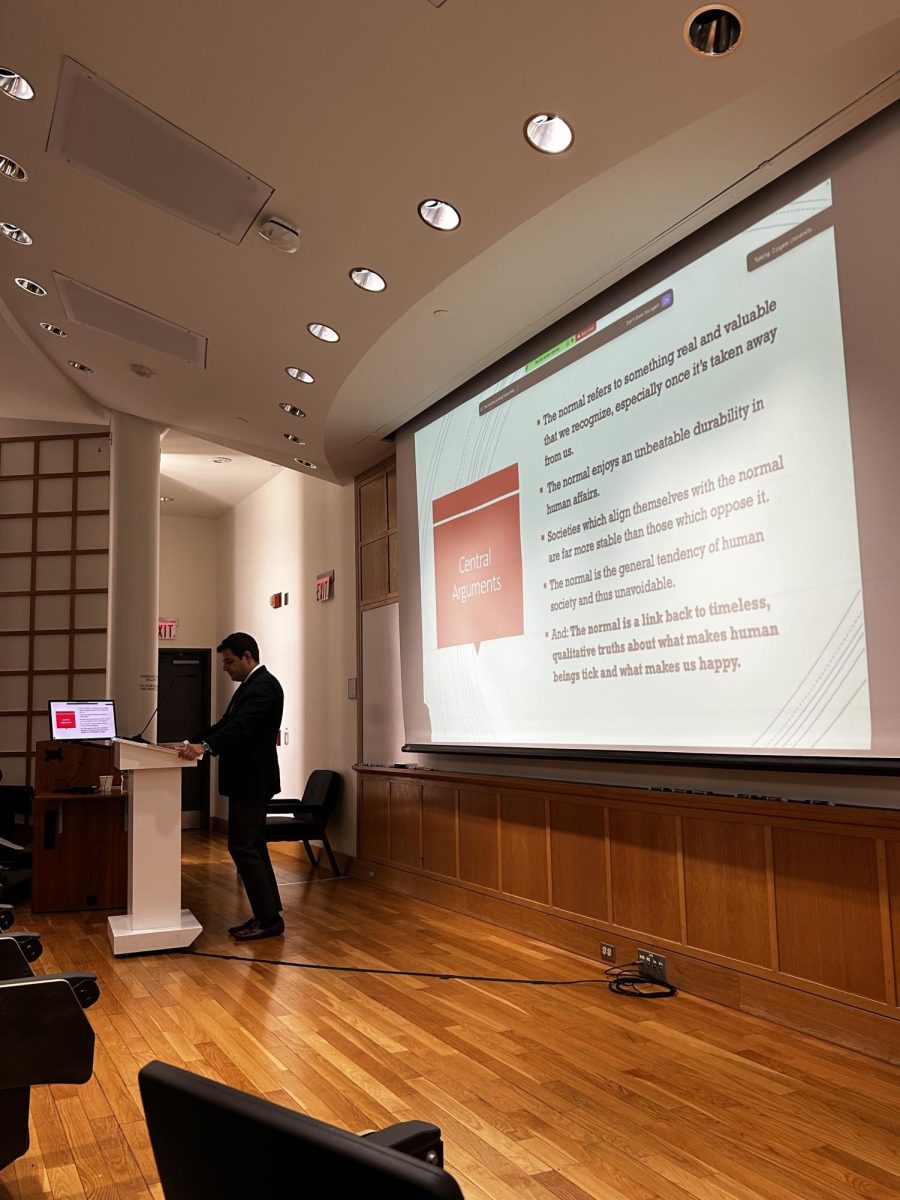Turning on the news at this period in history is something that feels like an embodiment of a series of unfortunate events. It seems almost impossible to keep up with everything that is happening in the world at any given time, or even all the major news that is happening in our country right now.
Major headlines tend to jump out to us, and we hear and see them regardless of if we even watch the news. In the midst of the presidential election, the crisis in the Middle East, the war in Ukraine and many other world events, we are seemingly thrown news every time we open our phones. What I believe appears to have been brushed under the rug, intentionally or unintentionally, is the national debt crisis.
Because this is something that people may not know much about, as it is seemingly absent from the news feed, let’s start with a basic understanding of the national debt itself. In any given fiscal year, if the spending by the federal government exceeds the revenue made, the government makes up for this difference by selling what are called marketable securities, such as bonds, bills, notes and Treasury inflation-protected securities. This allows the federal government to borrow money. However, as this deficit has grown over time, the United States is now in a major debt situation.
The national debt has existed since the American Revolutionary War and reached close to $3 billion by the end of the American Civil War. As of today, the national debt is over $35 trillion and is mainly caused by healthcare costs, the COVID-19 pandemic and other expected structural issues of maintaining a functioning country. With a debt this high, the interest rates on this money are also expectedly high. Not only are we not paying off this debt, but we are adding 2.4 billion dollars every day in interest. We are not even facing a major world war, which in the past have explained situations like these. This is largely unprecedented, and not a problem that only our country is facing. However, we are leading the way.
In major crises, we accumulate trillions of dollars in debt. So what happens next time we have a trillion dollar crisis? Will we be able to afford it? In the absence of a crisis, we are still accumulating a couple trillion dollars of debt a year anyway with the interest rates that we are facing. When will we not be able to afford this?
A number this large seems almost incomprehensible; to me, it seems otherworldly. The fact that it has been around for so long also does not help. We are used to being in this major debt, and it appears that no one really expects anything less anymore. But that does not mean that we shouldn’t expect something different. So, why is this topic not a major headline? Why aren’t more people talking about the financial crisis that our federal government is dealing with? The issue is exactly what I just mentioned: we are too used to it. This is not new information, not something that happened yesterday that caused us to stop and think, to read about or that we see on our social media feeds. When we turn on the presidential debates and pay attention to the race, we see no potential plans to fix this. Neither party is talking about the debt, and their tax proposals are not about fixing this but rather about being able to spend more.
With all that being said, I believe it remains an important issue. There are so many institutions that the government puts in place that people rely on for money and services, such as medicare and pensions, and it appears that soon the government will not be able to afford these things. Not only that, but the U.S. government will not be seen as a responsible recipient of loans pretty soon.
I don’t have a solution for this, but you would think a responsible politician would. Right?
















